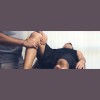In Balance Physiotherapy provides expert physiotherapy and sports injury rehabilitation for a wide range of acute and chronic neuro-musculoskeletal conditions. We specialise in dealing with movement disorders, whether due to injury, pain or neurological conditions. Our treatment is hands-on & effective.
Aberdeen Balance Clinic provides treatment for your dizziness or imbalance. Rehabilitation for a wide range of acute and chronic musculoskeletal & neurological conditions. For early diagnosis and treatment contact us. At In Balance Physiotherapy & Sports Injury Clinic we understand that you want to return to full sporting activity as soon as possible.
Aberdeen Balance Clinic provides treatment for your dizziness or imbalance. Rehabilitation for a wide range of acute and chronic musculoskeletal & neurological conditions. For early diagnosis and treatment contact us. At In Balance Physiotherapy & Sports Injury Clinic we understand that you want to return to full sporting activity as soon as possible.
Services
Welcome to Aberdeen Balance Clinic, Scotland's specialist balance centre, offering you a one-stop assessment, diagnosis and treatment programme for your dizziness, vertigo or imbalance. Aberdeen Balance Clinic is based at In Balance Physiotherapy in the centre of Aberdeen City. The clinic is led by Alan Sealy, a leading Clinical Specialist Physiotherapist and expert in Vestibular Rehabilitation.
The ability to maintain balance depends on information that the brain receives from three different sources-the eyes, the muscles and joints, and the vestibular organs in the inner ears. All three of these sources send information in the form of nerve impulses to your brain. Sensory inputs from the eyes give visual cues that aid in balance.
The vestibular organs of the inner ear provide the brain with information about changes in head movement. If the vestibular system is not functioning properly, dizziness, vertigo, imbalance, spatial disorientation, and other symptoms can result. An imbalance of signals between the two sides of the vestibular system will lead to vertigo or dizziness as the brain stem will not be able to coordinate the conflicting signals together.
I get a sudden attack of dizziness everytime I tilt my head back to look up at the ceiling or turn my head to one side. After 10-30 seconds it subsides. It's also difficult to roll onto my side in bed or to bend forwards. I am fine so long as I avoid these positions, but it interferes with my life and I'm frightened about getting an attack in public.
PPPD might occur when a patient fails to recover from an episode of dizziness. Inappropriate compensation strategies (for example holding your head still) mean that the brain is unable to adapt to the change in sensory inputs. The result is a sensitivity to motion and to visual inputs (visual vertigo).
Reviews

Be the first to review In Balance Physiotherapy & Sports Injury Clinic.
Write a Review

